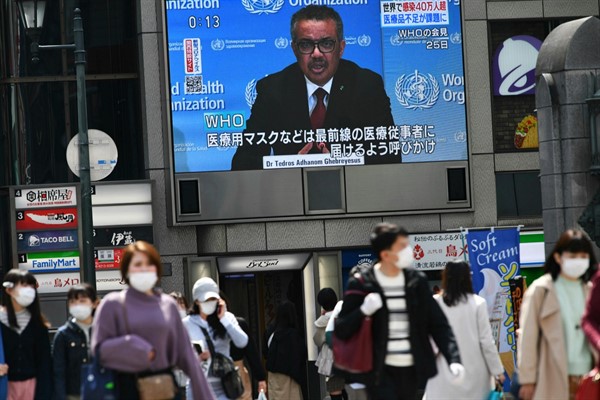Jean Palou of the Chilean daily El Mercurio interviewed WPR’s editor-in-chief, Judah Grunstein, by email last week for an article on the prospects for multilateralism and global governance institutions during and after the coronavirus pandemic. Grunstein outlined the challenges to the international system that predated the pandemic; why global governance still matters, even if it has been hampered; and the major questions going forward as the next phase of this global crisis unfolds. The following is the full transcript.
El Mercurio: United Nations Secretary-General Antonio Guterres has called the coronavirus pandemic the most challenging crisis since the organization’s founding after World War II. But the Security Council has been silent, and the World Health Organization, or WHO, has been ignored by many countries and accused of a slow and erratic response to the crisis. In general terms, what do you think about the response of those global mechanisms to the pandemic? Why does global governance still matter for this crisis?
Judah Grunstein: One reason for the Security Council’s lack of response is that the current crisis comes after a long period of tensions between the U.S. and Russia, and more recently of increasing tensions between the U.S. and China. This has seriously hampered the Security Council’s ability to act on crises in Syria, Yemen, Libya and Myanmar over the past eight years, because almost every attempt to do so is politicized by one side or the other, either to advance its interests or obstruct the other side from doing so. The impasse over COVID-19 is the latest example.

